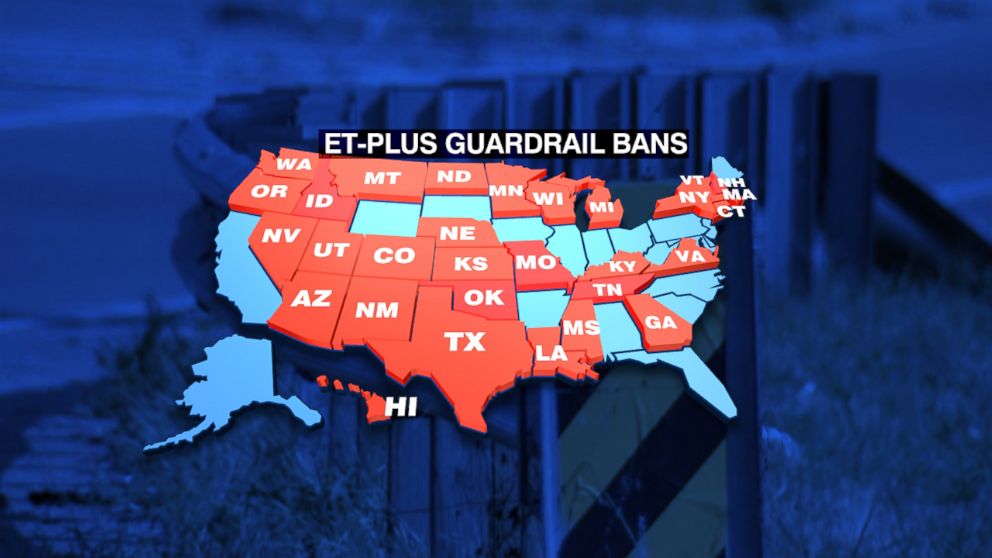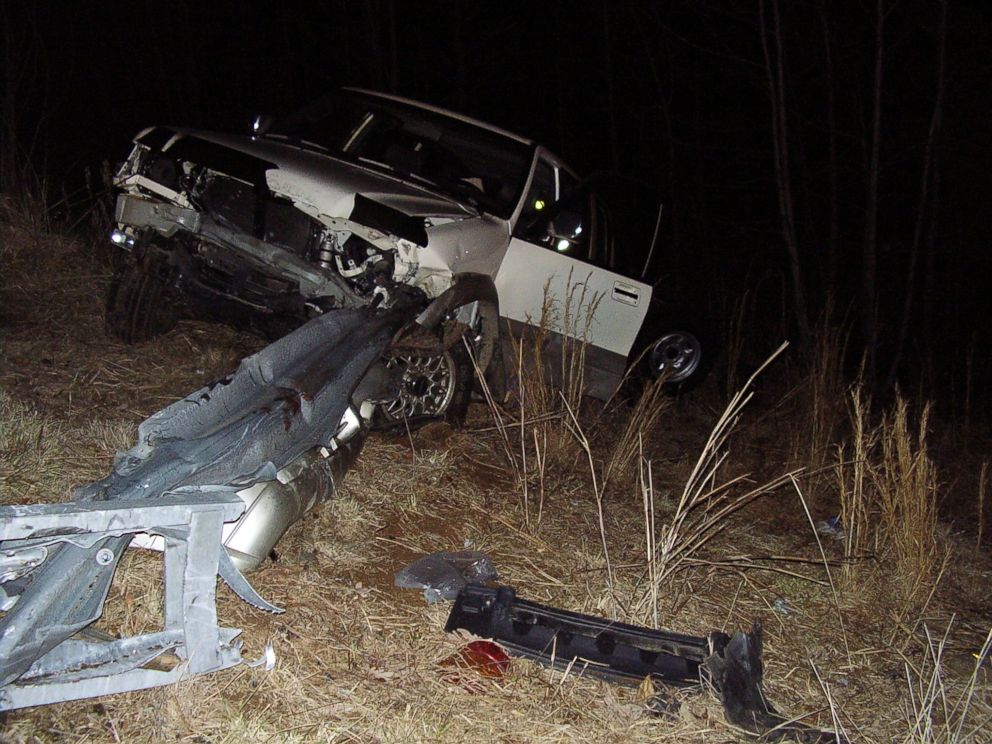Under the Wire: Guardrail Company Avoids Nationwide Ban With Crash Test Plan
Government, company silent on nature of new tests.
— -- The federal government has received, but is refusing to disclose, an urgent plan to re-test the safety of guardrails found on American highways across the country amid accusations they are dangerous to motorists.
Just under the deadline, Trinity Industries, maker of the controversial ET-Plus system, submitted plans to the government for the new tests, as 30 states have announced they’ve already banned new installations of the guardrail until it is proven safe.
“The Federal Highway Administration received Trinity’s ET-Plus test plan. The FHWA will expeditiously, but carefully, review the plan,” a statement provided today from the FHWA to ABC News reads.
The government agency says it will review what Trinity Industries sent “with a sense of urgency” but does not have a timetable in which it will respond to the company. Starting 10 days ago, Trinity had been given until today to submit plans or the government would rule the commonly-used guardrail ineligible for American roads.

The FHWA would not disclose further information about the crash test plans and directed requests for details of the “draft plan” to Trinity. A spokesperson for Trinity told ABC News it is not sharing details publicly at this time.
“The public should be able to review these materials,” said Sean Kane, founder of The Safety Institute. “We can’t tell the difference between the regulators and the regulated here. This coziness has been part of the problem since the beginning.”
Thirty states have now announced they are suspending further installation of the ET-Plus and one state, Virginia, said it is making plans to remove the guardrails from its highways entirely. Late last week, Trinity Industries said it would halt sales of the ET-Plus.
The demand from the FHWA for crash tests came a day after a Texas jury ruled that Trinity had defrauded the government by altering an approved guardrail end terminal design nearly a decade ago and then failing to tell federal or state transportation departments about the changes until questions were raised in 2012. Trinity was ordered to pay $175 million in damages -- a figure expected to triple by statutory mandate.
The ET-Plus System was the subject of an ABC News “20/20” investigation in September that looked into allegations from crash victims that the modified guardrail can malfunction when struck from the front by their vehicles’. Rather than ribboning out and absorbing the impact as designed, the guardrails “locked up” and speared straight through the cars, severing the motorists’ limbs in some cases.

Lawyers for the plaintiff in the Texas case, Josh Harman, expressed concern about any planned crash tests to the FHWA and have asked to be involved in discussions prior to the testing of the ET-Plus.
“While we believe crash testing is important, we have several concerns about the protocol outlined by your office for testing and... we believe that testing alone would be insufficient to determine whether the ET-Plus should be eligible for federal reimbursement,” wrote attorney George Carpinello.
Dean Sicking, a renowned guardrail engineer who authored manuals for crash testing –- and who also testified against Trinity Industries in the federal trial -- wrote to the agency, questioning the type of tests it may conduct, concerned that there has been an “ongoing deception of the FHWA” by Trinity Industries.
Trinity has maintained the guardrails are safe, noting that the FHWA approved the modified guardrail for use after questions about the modifications were raised in 2012. The company plans to appeal the Texas verdict and has previously told ABC News it has a “high degree of confidence in the performance and integrity” of the ET-Plus system.




